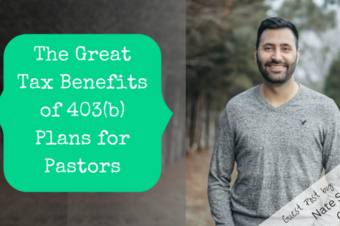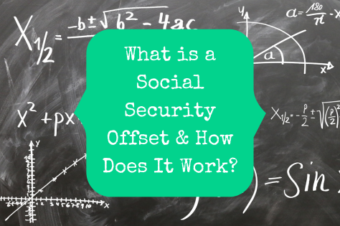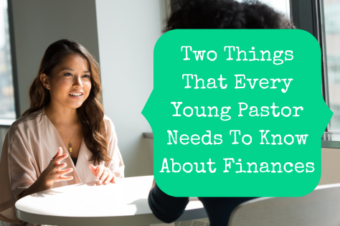Whether or not you ever want to stop working, it is important to plan and prepare for retirement just in case your health or your spouse force you to slow down at some point. A lot of people say that their retirement plan is to simply not retire, but real life has shown us that that isn’t always an option.
Knowing that, it is irresponsible not to plan for being unable to work someday. The biggest part of a retirement plan is saving money now, while you are still working, so you will have something to live off of when you stop working. Just creating margin in your budget to be able to save for the future is the biggest battle. If you can start to actually save, then it’s all fairly easy after that.
While stock-piling cash in a can under your bed is better than what a lot of Americans are doing (which is nothing), there are smarter ways to save for retirement. There are ways that will allow your money to grow and earn interest and ways that your money can legally avoid taxation. Here are the top four ways for ministers and pastors to save for retirement.
Church-Sponsored 403(b)
Most denominations and some independent churches sponsor their own retirement plans. Most of these are 403(b) plans, though some are now starting to use 401(k)s. (You can read about the difference here.) Both kinds of plans are tax-advantaged, which is a big help when saving for retirement.
These plans are great because they allow you to set aside up to $23,000 (more if you’re over 50) before paying taxes on it (and you never have to pay Social Security and Medicare taxes on contributions!). That means you have more money to invest and start earning compound interest. Some even offer Roth options, where you invest after paying taxes but don’t have to pay taxes on the gains (this isn’t recommended if you’ll use the funds for housing because…).
One of the best things about saving for retirement in your church’s 403(b) is that it qualifies for the housing allowance in retirement. (There is debate over whether a 401(k) qualifies for the housing allowance in retirement.) That means withdrawals from your 403(b) can be tax-free in retirement if you use them for qualified housing expenses. You can read all about that here.
Traditional Or Roth IRA
If you don’t have access to a 403(b) or 401(k), your best option is likely to save in an IRA. Like with the church-sponsored plans, there are tax advantages to utilizing one. Traditional IRAs allow you to invest your money before paying taxes on it, which leaves you with more to invest. Roth IRAs allow you to pay taxes first and avoid paying taxes on any of the money that your account earns. You can learn more about the differences here.
You can’t put quite as much into an IRA, only $7,000 for 2024 (or $8,000 if you’re over age 50). However, they do hold some advantages over the workplace retirement plans. They offer more flexibility in investment options and you have more control over the account. However, if you plan on claiming a housing allowance in retirement, the 403(b) is often a better option even if the fees are higher.
Taxable Brokerage Account
If you don’t have access to a workplace retirement plan, saving $7,000 a year into an IRA may not be enough to prepare you for retirement. Once you’ve maxed out your IRA, you may need to start saving into a taxable brokerage account.
As the name implies, you receive no tax benefits for saving in a taxable brokerage account. You have to pay taxes on your money before you put it in and you have to pay taxes on all of the gains that your account generates.
Even without tax advantages, a brokerage account is likely better than just saving in a traditional savings account. Savings accounts only pay interest, often not even enough to keep up with inflation. Brokerage accounts allow you to invest your money in the stock market, which means your money has a chance to grow and multiply. If you don’t have a lot of money to save for retirement, then having your accounts grow in this way is key to your ability to retire one day.
Health Savings Account
A health savings account (HSA) has the best tax advantages out of all of your options covered in this article (unless you claim a housing allowance from your 403(b), then they’re equal). However, I listed it last because it is probably available to fewer of my readers. You see, you have to have a qualifying high-deductible health insurance plan in order to be eligible to open an HSA. Check with your insurance provider, though, because if you are eligible, it’s more than worth it to open one.
An HSA is a savings account that is used for health care expenses. Why is it listed as a way to save for retirement? Because just about everyone has health care expenses in retirement, usually more than at any other time in their life. If you pay for your current health care needs out of your cash flow, an HSA can be an incredibly powerful retirement savings vehicle.
What makes an HSA so special is that it has double tax benefits. Like a traditional retirement account, you get to put your money into it before paying any taxes, so you have more to put in. Then it also has the benefits of a Roth account, where you get to take all of the money out tax-free when used for medical expenses. You don’t pay taxes when you put the money in or when you take it out. That’s why an HSA provides more tax savings than any other retirement account out there. And, you can invest it in the stock market just like any other retirement account. If you decide not to use the money for medical expenses, you can take it out after age 59 1/2 penalty-free, you’ll just have to pay income taxes as you would with a traditional IRA.
While you may not want to retire, it’s important to prepare just in case you are forced to. What I have listed here are not the only ways that you can save, you could invest in real estate or save cash in a can under your bed, but they are the easiest and most beneficial ways to save.
Saving for retirement is always a good idea. Even if you don’t end up using all of your savings, you can always use it to bless your kids, your church, or your favorite missionary. And who wouldn’t want to do that?




















